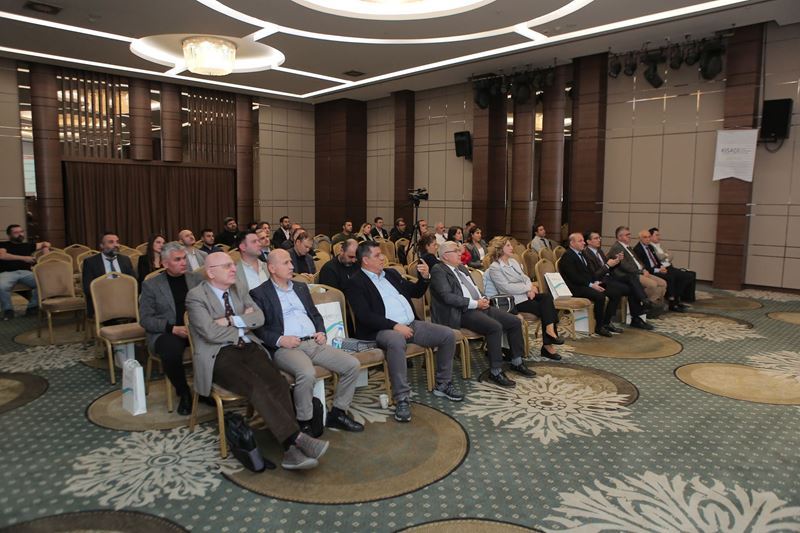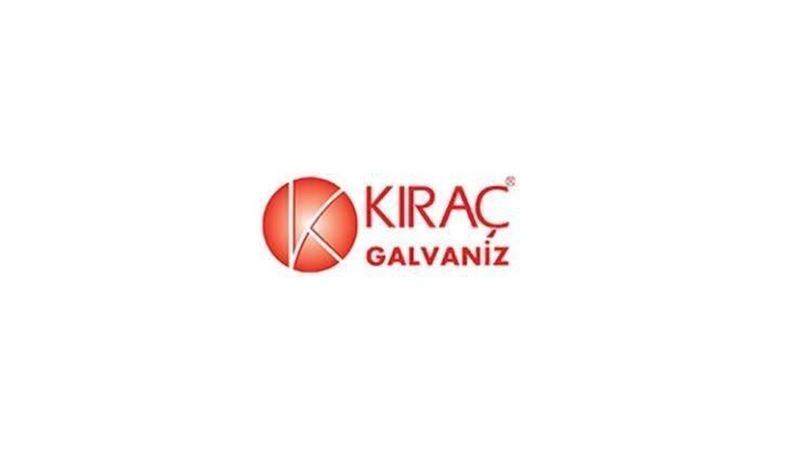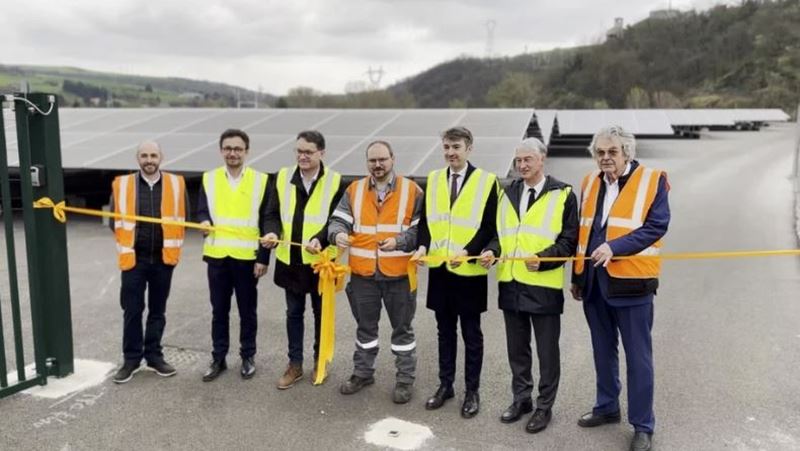The panel was attended by officials from the General Directorate of Highways, KİSAD members, Asphalt Contractors Association of Türkiye (ASMÜD) representatives and officials from various municipalities. KİSAD Board Member Nurol Şengel and ASMÜD Secretary General Zeliha Temren made the opening speeches.
The effect of lime on road soil stabilization and asphalt performance was tested
Zeliha Temren, Secretary of ASMÜD, discussed the use of lime in road infrastructure and superstructures in line with sustainable approaches. In her presentation, Temren emphasized that lime contributes to soil stabilization and asphalt performance and stated that the important role of lime in this field was included in the Highway Technical Specifications (HTS) in 2013 and tested with pilot applications. Temren also drew attention to the barriers to innovation in the sector, citing inadequate incentives, lack of R&D, and leaving performance risks to contractors.
Şenol Çömez, Chief of Soil Stabilization at the R&D Department of the General Directorate of Highways, made a presentation titled “Lime and Land Applications in Highways Technical Specifications”. In his presentation, Çömez shared the technical details of lime in soil stabilization and applications in this field.
Çömez emphasized the improving effects of lime in road infrastructure and superstructure, and also touched upon its usage areas on the ground. He stated that lime is used to improve the properties of soils that cannot be used as filling material or have poor bearing capacity. He also stated that the stabilization process is carried out by adding lime to soils and that various laboratory and field tests are applied in this process.
The presentation also touched upon the Highway Technical Specifications (HTS) 2023. It was stated that the TCC covers the physical and chemical properties of lime for soil stabilization, application steps and control tests. Section 218 of the GCC contains the basic requirements and methods for lime stabilization operations. These requirements include material classification, optimum water content control, compaction operations and arrangement of joints.
The presentation also demonstrated the successful application of lime stabilization processes in the Kınalı-Tekirdağ-Çanakkale-Savaştepe Motorway and Kaynarca-Karasu-Kocaeli Road projects. In the tests, it was emphasized that the bearing capacity (CBR) of the soil increased after stabilization with lime, the swelling potential of the soil decreased significantly, and compression and deformation modulus tests were carried out during the stabilization processes.
“Hydrated lime increases performance and reduces costs”
Prof. Dr. Atakan Aksoy made a presentation titled “Mechanisms of Hydrated Lime Modification in Asphalt Mixtures - An Evaluation with the Latest Technologies”. In his presentation, Prof. Aksoy discussed the mechanisms of hydrated lime modification in asphalt mixtures and the latest technologies in this field. He explained that hydrated lime is used in asphalt mixtures to prevent moisture damage, reduce oxidation and improve mechanical properties, and that it increases cracking resistance, slows down aging and ensures long life of asphalt. He also underlined that the addition of hydrated lime to recycled asphalt pavements is an environmentally appropriate method and that lime creates synergistic effects in such mixtures, improving performance and reducing costs.
The panel continued with the presentations of Assoc. Prof. Dr. Aydın Kavak on “Improvement of Weak Soils with Lime in Road Infrastructure” and Dinçer Aktepe on “Practical and Operational Advantages of Lime Applications in Infrastructure and Superstructure, Field Observations and Machinery and Equipment Investments for this Purpose”.









Comments
No comment yet.